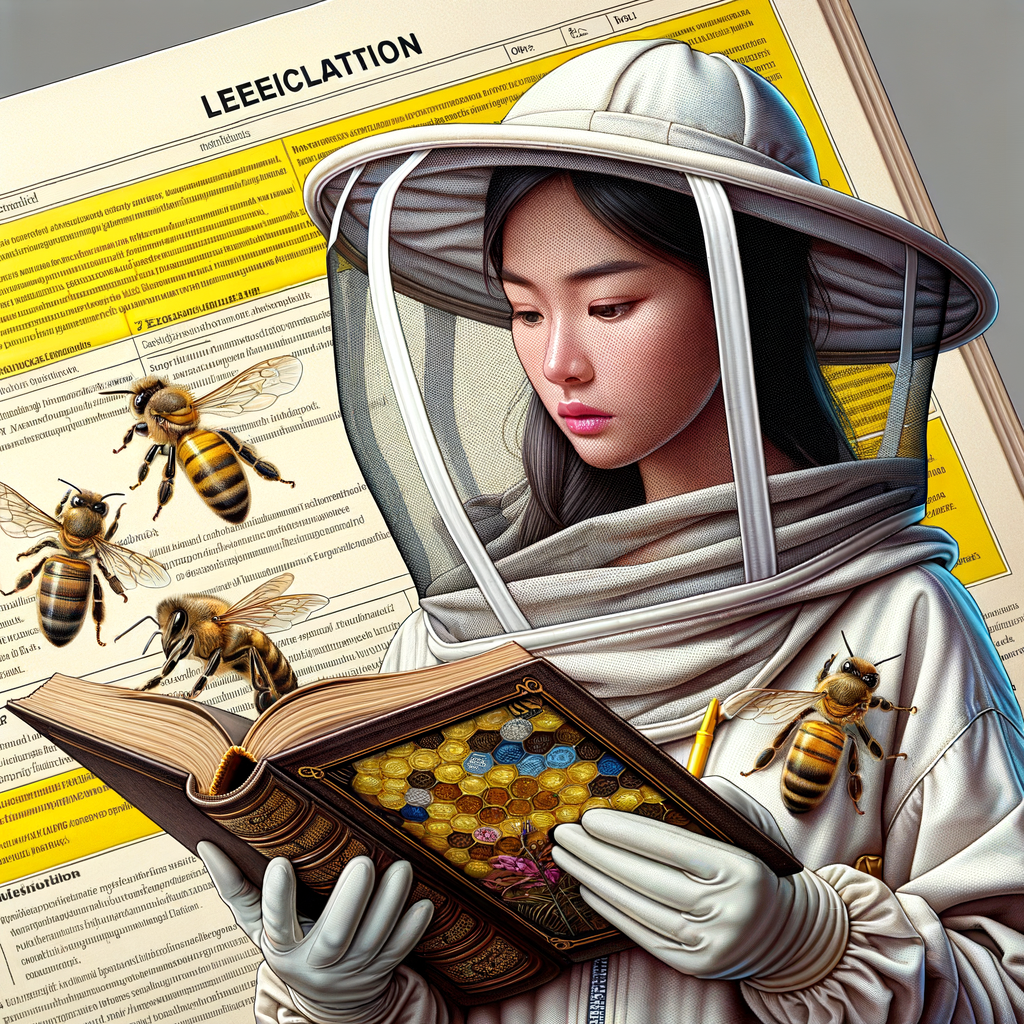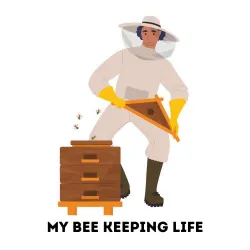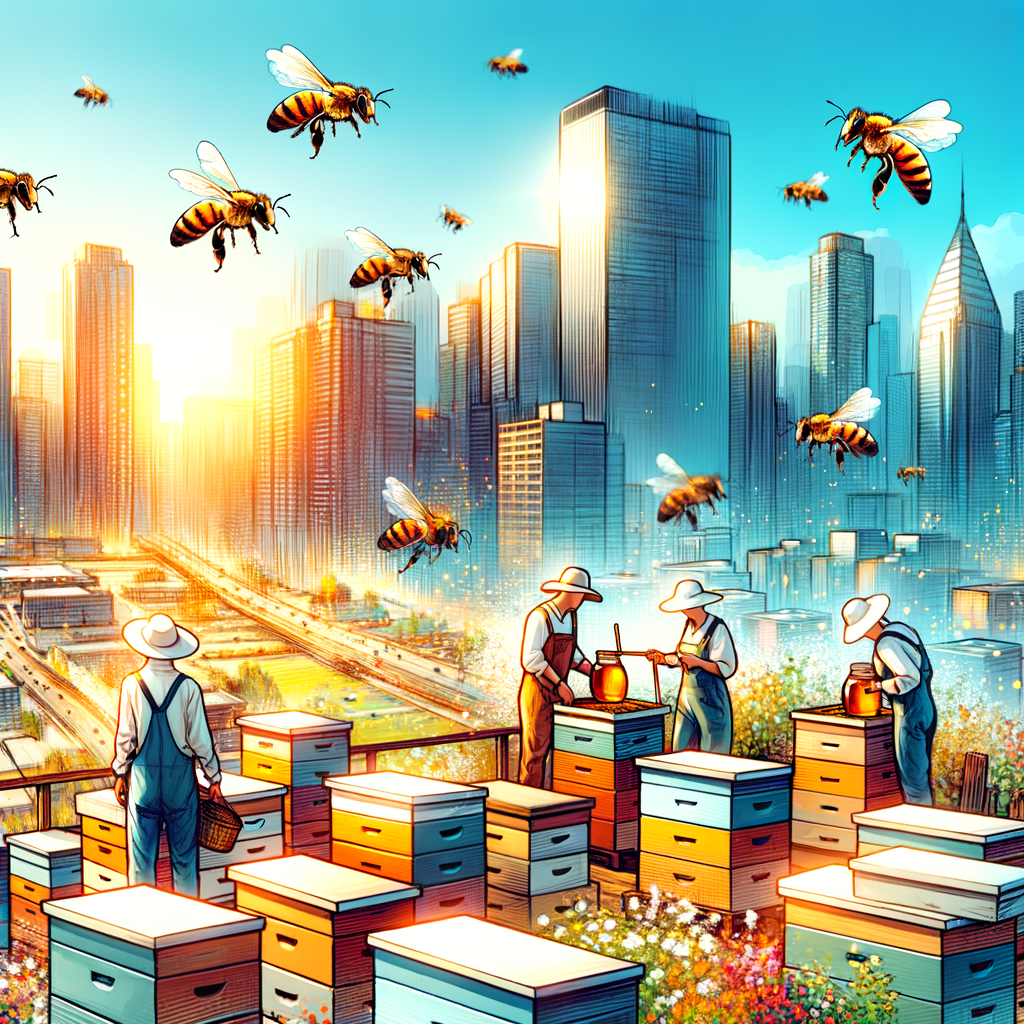
Introduction to Beekeeping Laws
Whether you’re a seasoned beekeeper or a beginner in the field, understanding beekeeping laws is crucial. These laws not only protect the bees, but also the beekeepers and the community at large. In this section, we’ll delve into the importance of these laws and provide an overview of the legal aspects of beekeeping.
- Understanding the Importance of Beekeeping Laws
- Legal Aspects of Beekeeping: An Overview
Beekeeping laws are designed to protect and preserve our precious bee populations. Bees play a vital role in our ecosystem, particularly in pollination, which is crucial for the growth of plants and the production of fruits and vegetables. Without bees, our food supply would be severely impacted. Therefore, beekeeping laws are in place to ensure that beekeepers follow best practices that promote the health and survival of bees.
Furthermore, these laws also protect beekeepers and their neighbors. They regulate where and how beehives can be kept, ensuring that they are not a nuisance or danger to others. For instance, some laws require beekeepers to keep their hives a certain distance away from property lines or public spaces. This helps to prevent conflicts and maintain harmony in the community.
The legal aspects of beekeeping can vary greatly depending on your location. In general, they cover areas such as the registration of beehives, disease control, hive placement, and the sale of honey.
Registration of beehives is often required to help local authorities monitor and manage bee populations. This can help in the event of a disease outbreak, as authorities will know where bees are kept and can take quick action to prevent the disease from spreading.
Disease control laws are in place to prevent the spread of diseases that can harm bees. Beekeepers may be required to regularly inspect their hives for signs of disease and to report any issues to the authorities.
Hive placement laws regulate where beehives can be kept. These laws aim to minimize conflicts between beekeepers and their neighbors, and to ensure that bees have access to adequate forage.
Finally, laws regarding the sale of honey ensure that honey is safe for consumption and that it is labeled correctly. This protects consumers and helps to maintain the integrity of the beekeeping industry.
In conclusion, understanding and complying with beekeeping laws is essential for the wellbeing of bees, the success of your beekeeping endeavors, and the harmony of your community. As we delve deeper into this topic in the following sections, we’ll provide more detailed information on how to navigate these laws and what they mean for you as a beekeeper.
Understanding Beekeeping Legal Issues
When it comes to beekeeping, there are certain legal issues that every beekeeper should be aware of. These laws are designed to protect both the beekeeper and the community. Understanding these laws can help you avoid potential problems and ensure that your beekeeping activities are legal and ethical.
Common Legal Issues in Beekeeping
There are several legal issues that beekeepers commonly face. These include issues related to property rights, legal responsibilities, and environmental considerations.
- Property rights and beekeeping: One of the most common legal issues in beekeeping is related to property rights. Depending on where you live, there may be specific laws about where you can keep bees. For example, some areas require beekeepers to keep their hives a certain distance from property lines or public spaces. It’s important to understand these laws to avoid disputes with neighbors or local authorities.
- Legal responsibilities of beekeepers: As a beekeeper, you have certain legal responsibilities. This includes ensuring that your bees do not become a nuisance to others. In some cases, you may be held legally responsible if your bees cause damage or harm to others. You also have a responsibility to maintain the health of your bees and to report any signs of disease to the appropriate authorities.
- Environmental considerations and legal issues: There are also legal issues related to the environment. For instance, some laws require beekeepers to take steps to protect local wildlife and plant species. This could include restrictions on the use of certain pesticides or requirements to provide a certain amount of forage for your bees. Understanding these laws can help you ensure that your beekeeping activities are sustainable and environmentally friendly.
In conclusion, understanding the legal issues related to beekeeping is crucial for anyone interested in this activity. By familiarizing yourself with these laws, you can ensure that your beekeeping activities are legal, ethical, and beneficial to both you and your community.
Beekeeping Regulations: A Closer Look
Understanding beekeeping regulations is crucial for anyone interested in this fascinating hobby or business. These laws are designed to protect both the bees and the people around them. Let’s take a closer look at local beekeeping regulations.
Local Beekeeping Regulations
Local beekeeping regulations can vary significantly from one place to another. It’s essential to familiarize yourself with the rules in your area to ensure you’re beekeeping responsibly and legally.
- Understanding your local beekeeping laws
- Case Study: Beekeeping regulations in different states
Local laws often dictate where you can keep bees, how many hives you can have, and what you need to do to keep your bees healthy. For example, some areas require beekeepers to register their hives, while others may have specific rules about hive placement to prevent issues with neighbors. It’s a good idea to contact your local government or a local beekeeping association to learn about the regulations in your area.
Let’s take a look at how beekeeping laws can vary in different states. In California, for instance, beekeepers are required to register their hives annually with the county agricultural commissioner. On the other hand, Texas does not require registration, but beekeepers are encouraged to mark their hives with their name and contact information. In New York, beekeepers must register with the state and are required to inspect their hives twice a year for diseases. This case study illustrates the importance of understanding your local laws before starting beekeeping.
Remember, beekeeping is not just about enjoying the sweet rewards of honey. It’s also about being a responsible member of your community and protecting these vital pollinators. By understanding and following your local beekeeping regulations, you can ensure a positive and productive experience for you, your bees, and your neighbors.
National and International Beekeeping Regulations
When it comes to beekeeping, it’s not just local laws that matter. National and international regulations also play a big role. Let’s take a closer look at these.
- Overview of National Beekeeping Laws
In the United States, national beekeeping laws are mostly focused on the transportation of bees across state lines. This is to prevent the spread of diseases and pests that could harm bee populations. For example, the Honeybee Act of 1922 prohibits the importation of live bees into the United States to protect against foreign diseases and parasites.
But it’s not just about disease control. National laws also regulate the use of certain pesticides that can harm bees. For instance, the Environmental Protection Agency (EPA) regulates the use of neonicotinoid pesticides, which are known to be harmful to bees.
It’s important for beekeepers to stay up-to-date with these laws to ensure they’re keeping their bees safe and healthy.
- Understanding International Beekeeping Regulations
On the international stage, beekeeping regulations can vary widely. However, there are some common themes. Many countries have laws in place to protect bees from diseases and pests, just like in the United States.
For example, the European Union has strict regulations on the use of certain pesticides. They also have laws in place to prevent the spread of the Varroa mite, a major threat to honeybees worldwide.
Some countries also have laws about where you can keep bees. In Australia, for example, you can’t keep bees in certain national parks or protected areas.
Understanding these international regulations is especially important if you’re planning to import or export bees or honey. You’ll need to make sure you’re following all the relevant laws to avoid any problems.
In conclusion, national and international beekeeping laws are a crucial part of beekeeping. They help protect our precious bee populations from threats like disease and harmful pesticides. By understanding and following these laws, we can all do our part to help keep bees safe and thriving.
| Regulation | Details |
|---|---|
| Honeybee Act of 1922 | Prohibits the importation of live bees into the U.S. to protect against foreign diseases and parasites. |
| EPA regulations on pesticides | Regulates the use of neonicotinoid pesticides, known to be harmful to bees. |
| EU regulations on pesticides | Has strict regulations on the use of certain pesticides harmful to bees. |
| Australia’s beekeeping laws | Restricts beekeeping in certain national parks or protected areas. |
Legal Guide for Beekeepers: Navigating the Law
Understanding the legal landscape of beekeeping can be a daunting task. However, it is crucial to ensure the health of your bees and the success of your beekeeping venture. In this section, we will delve into the legal requirements for beekeeping, including registration and licensing requirements, and health and safety regulations.
Legal Requirements for Beekeeping
There are two main areas of legal requirements that every beekeeper needs to be aware of:
- Registration and Licensing Requirements
- Health and Safety Regulations for Beekeeping
Before you can start your beekeeping journey, you must first register with your local government or relevant beekeeping association. This registration process often involves providing details about your beekeeping site and the number of hives you plan to keep. Some regions may also require you to obtain a license, which may involve passing a beekeeping test or completing a training course.
Health and safety regulations are designed to protect both the beekeeper and the bees. These rules can cover a wide range of areas, including the proper use of beekeeping equipment, the safe handling of bees, and the management of bee diseases. For example, you may be required to keep your hives a certain distance away from public areas or to regularly inspect your hives for signs of disease.
Understanding and complying with these legal requirements is not just about following the law. It’s about ensuring the health and wellbeing of your bees, protecting the environment, and contributing to a sustainable and thriving beekeeping community.
Beekeeping Law Compliance: A Step-by-Step Guide
Complying with beekeeping laws can seem like a daunting task. But, with a clear understanding and a step-by-step approach, it becomes manageable. Here’s a simple guide to help you navigate through this process.
- Step 1: Understanding your legal responsibilities
- Step 2: Ensuring compliance with local laws
- Step 3: Navigating national and international regulations
As a beekeeper, you have certain legal responsibilities. These include ensuring the health and safety of your bees, and preventing them from causing harm to people or property. You are also required to register your hives and maintain records of your beekeeping activities. Understanding these responsibilities is the first step towards compliance.
Local laws vary widely, so it’s crucial to familiarize yourself with the regulations in your area. These may include restrictions on where you can keep bees, how many hives you can have, and what types of bees you can keep. You may also need to comply with zoning laws and obtain permits or licenses. Always check with your local government or beekeeping association for the most accurate information.
National and international regulations can also affect your beekeeping activities. For example, some countries have strict rules about importing bees to protect local species. Others have specific requirements for labeling and selling honey. It’s important to stay informed about these regulations to avoid legal issues and ensure the sustainability of your beekeeping practice.
In conclusion, complying with beekeeping laws is a crucial part of being a responsible beekeeper. By understanding your legal responsibilities, ensuring compliance with local laws, and navigating national and international regulations, you can ensure that your beekeeping activities are legal and sustainable.
| Step | Action |
|---|---|
| 1 | Understand your legal responsibilities |
| 2 | Ensure compliance with local laws |
| 3 | Navigate national and international regulations |
Remember, the law is there to protect both you and the bees. By following these steps, you can contribute to the wellbeing of our environment and enjoy the rewarding practice of beekeeping.
Legal Considerations for Future Beekeepers
As a future beekeeper, it’s crucial to understand the legal aspects that come with the territory. This will not only ensure your beekeeping activities are lawful but also help protect your bees and the environment. Let’s delve into some of these legal considerations.
Planning Ahead: Legal Aspects to Consider
Planning is a significant part of beekeeping. It’s not just about the bees and the honey; it’s also about understanding the laws and regulations that govern beekeeping. Here are a few key legal aspects to consider:
- Understanding zoning laws and property rights
- Considering environmental impacts and regulations
Zoning laws vary from one location to another. Some areas may restrict beekeeping activities, while others may have specific rules about where you can place your hives. It’s essential to understand these laws to avoid potential legal issues. Additionally, you should be aware of property rights to ensure you’re not infringing on anyone else’s space or rights.
Beekeeping has a significant impact on the environment. Bees play a crucial role in pollination, which is vital for plant growth and food production. However, improper beekeeping practices can harm the environment. Therefore, it’s important to understand environmental regulations related to beekeeping. This includes rules about pesticide use, hive placement, and bee management practices.
By understanding these legal aspects, you can plan your beekeeping activities effectively and responsibly. Remember, the goal is not just to produce honey but also to contribute positively to the environment and the community.
Key Takeaways for Aspiring Beekeepers
As we delve into the world of beekeeping, it’s crucial to remember some key points. These will guide you on your journey and ensure that your beekeeping practice is both successful and legal.
- Importance of Understanding Beekeeping Laws
- Steps to Ensure Legal Compliance
- Resources for Further Learning
First and foremost, understanding beekeeping laws is vital. These laws are in place to protect both you and the bees. They regulate where and how you can keep bees, ensuring the safety of the community and the welfare of the bees. For instance, some laws may restrict beekeeping in certain residential areas or require specific equipment and practices to prevent disease spread among bee populations.
Next, you need to take steps to ensure you are in compliance with these laws. This usually involves obtaining necessary permits, ensuring your property meets zoning requirements, and following recommended beekeeping practices. It’s a good idea to keep records of all your beekeeping activities and any communications with regulatory bodies. This can help you demonstrate compliance if ever questioned.
Lastly, never stop learning. Beekeeping is a complex practice with a steep learning curve. There are many resources available to help you continue to learn and grow as a beekeeper. These include books, online courses, and local beekeeping clubs. By continuing to educate yourself, you can stay up-to-date on the latest research and best practices, ensuring the health and productivity of your bees.
In conclusion, understanding the laws, ensuring compliance, and continually learning are three key takeaways for aspiring beekeepers. By keeping these points in mind, you can embark on your beekeeping journey with confidence and success.








